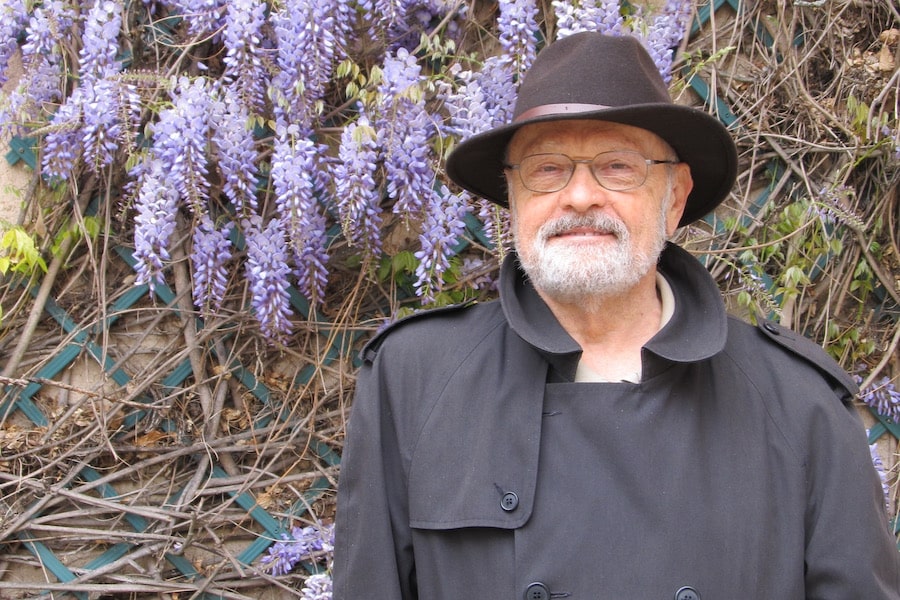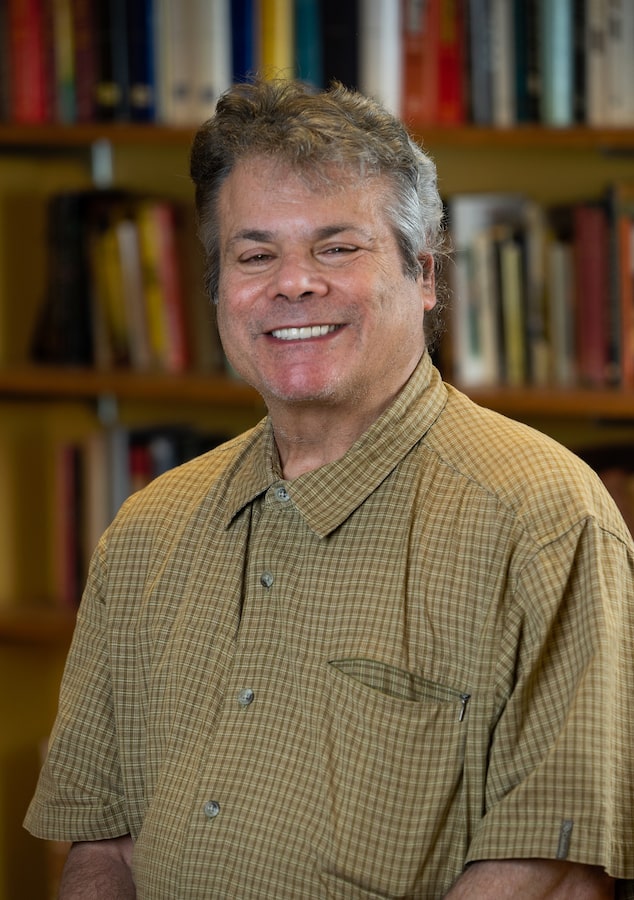CMU's Interdisciplinary Jewel
Rhetoric program prepares graduates for broad career opportunities
By Katy Rank Lev
Media Inquiries- Dietrich College of Humanities and Social Science
- 412-268-6094
Today, amid a pandemic, it's easy to see the value of impactful communication. David Kaufer, Mellon Distinguished Professor of English and Rhetoric and current director of the Rhetoric program at Carnegie Mellon University, oversees graduate students en route to becoming experts in language, focused on writing and the teaching of writing.
Kaufer said that since the university's founding, when CMU was rapidly developing programming in STEM fields, it has placed a heavy emphasis on its students experiencing a broad, interdisciplinary education. "The university has a history of caring about good writing," Kaufer said, "and of understanding the costs of bad writing."
In 1978, CMU was making a name for itself through legends like Herb Simon, a Nobel laureate and founding father of articifical intelligence, and Erwin Steinberg, the university's first vice provost for education who held the Thomas S. Baker Professorship of English and Interdisciplinary Studies. Simon and Steinberg both helped push the idea of a graduate program in rhetoric, recruiting someone to train master's degree and Ph.D. students. They looked to the School of Engineering at the University of Michigan, where Richard E. Young was a rhetorician working in technical communication.
It might seem unusual for a polymath like Simon and an English professor to look to an engineering department for their new rhetoric program leader, but CMU has always valued interdisciplinary work. Young stepped right in when he arrived, immediately building connections between seemingly unrelated fields of study.
Chris Neuwirth, one of the first Ph.D. graduates of the Rhetoric program who is now a joint faculty member in the departments of English and Human-Computer Interaction, observed that even in the 1980s, Young predicted that computers would come to heavily influence writing. She said, "In Richard, we had a visionary rhetorician who understood that invention and composition lie at the center of everything."

Richard E. Young, founding head of the Rhetoric program at CMU, helped shape the field of rhetoric into one that examines the ways we produce writing, but also analyzes what works in a text and what does not.
The Rhetoric program has since graduated over 200 Ph.D.s, scores of whom became professors, some now endowed chairs, department heads and deans, as well as hundreds of master's degree students who have become accomplished lawyers, political correspondents, teachers and administrators in corporations and nonprofits. The program has graduated hundreds of additional students from the Master of Professional Writing program who have helped innovate the fields of professional and technical communication and who work in industry, government and nonprofits. Richard Scheines, Bess Family Dean of the Dietrich College of Humanities and Social Sciences, emphasized the breadth of careers pursued by CMU rhetoricians. Scheines said, "Our rhetoric graduates helped build Silicon Valley, working as web designers and information architects, but also grant writers and nonprofit leaders."
The rhetoric faculty focus on the rhetoric of science, of law, of feminism and of race. "This program is the interdisciplinary jewel of Dietrich and of Carnegie Mellon University," said Scheines, who also noted the symbiotic relationship between rhetoric and learning science.
"This program is the interdisciplinary jewel of Dietrich and of Carnegie Mellon University." — Richard Scheines
Kaufer said the formation of the Rhetoric program was a testament to the ethos of CMU, which is that in every field, you can only go so far without the ability to write. "You can't lead a team or a group, and you can't claim intellectual property without rhetorical know-how," he said.
At a recent virtual celebration for the program's 40th anniversary, more than 20 graduates spoke of Young and the program's influence on their varied careers. The rhetoric curriculum has roots in the humanities — students study topics like grammar, style, the rhetoric of law and the architecture of the paragraph — but it also extends beyond the traditional humanities to study document design, online information design, science writing, writing for nonprofits and writing for the professions. At the center of their work, students learn to communicate about challenges and solutions, and thus can find a home in virtually any career field.
"What is the problem you are trying to solve," Young asked his students for decades before his successors picked up the drum. "Our problems are integrated even if our disciplines are not."
